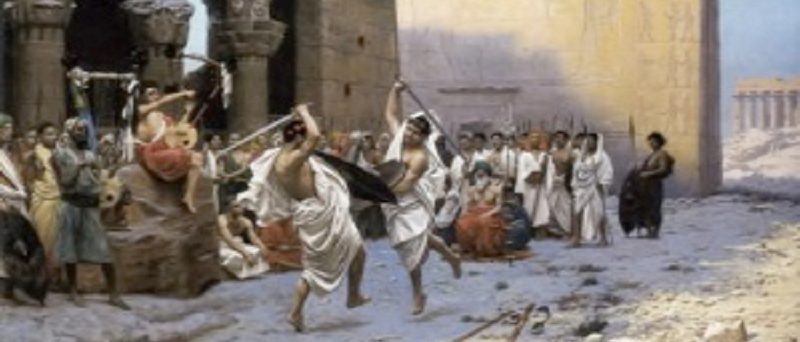Festivals in Sparta
Posted on 25th December 2020
Festivals played an important part in Spartan society to the point where warriors would delay or even not go into battle if it coincided with a festival.
Hyacinthia - One of the most important Spartan festival, lasting three days and held in early summer.
The first day was for mourning the death of the hero with sacrifices offered to the dead. Plain sacrificial breads and banquets were held without any pomp or ceremony.
The second day celebrated his rebirth; young people would play instruments including Aulas (wind instrument) and Cithara (instrument of the lyre family) and sing of the glory of Apollo; country songs would be sung by many choirs and there would be dancing; horse races also took place.
Carts were decorated by Spartan girls and women from Amyclae, then paraded in Amyclae (a village in Laconia) to celebrate the death of Hyacinthus. Goats and others were sacrificed and banquets held for citizens, families and friends. Helots (slaves) and foreigners were allowed to attend.
The third day was solemn, Spartan women would weave a Chiton (tunic), which was offered to the gods.
Due to the importance of this festival, war campaigns were believed to have been interrupted, so warriors could return and take part in the festival.
Carnea - A festival held in honour of Apollo Carneus (God of Flocks and Herds, Harvest and Vintage). An annual festival and no military campaigns would take place during the festival.
Chosen unmarried youths would chase a man (possibly a priest). If the man was caught it meant prosperity for the city, if not then the opposite would occur. Nine tents were set up with nine citizens and they would feast in honour of the gods. The Carnea festival was an imitation of life in military camp; in ceremony, a ram was sacrificed at the city of Thurli.
Gymnopaedia - An annual summer celebration dedicated to Apollo and other gods. Naked youths displayed their strength through martial arts and athletic skills; performing military war dances to show their musical grace and warrior stamina.
Enyalia - At Enyalia a dog was sacrificed to the god (Enyalius). Some believe Enyalius to be Ares, the God of War.
Tagged as: Junior Ancient Greece
Share this post:





